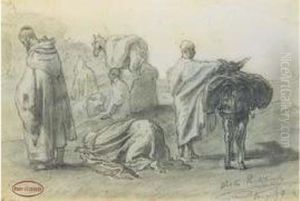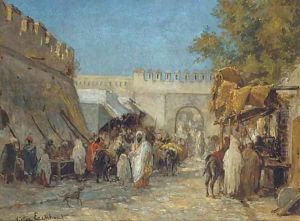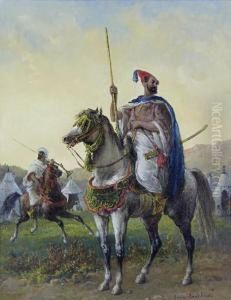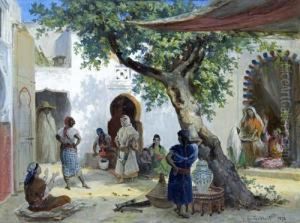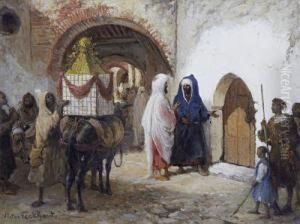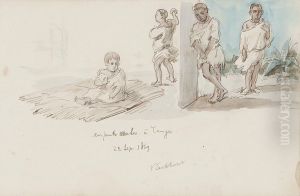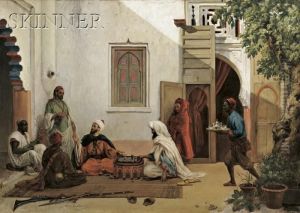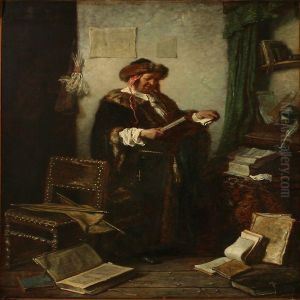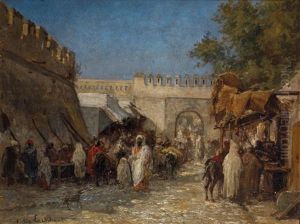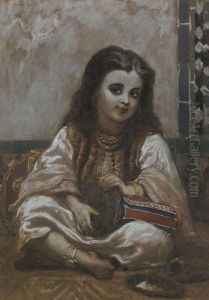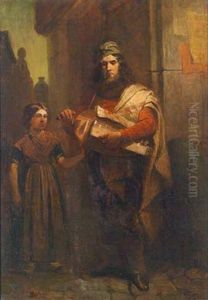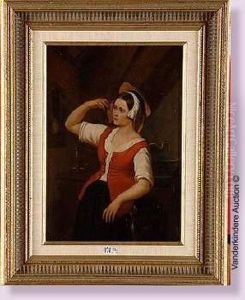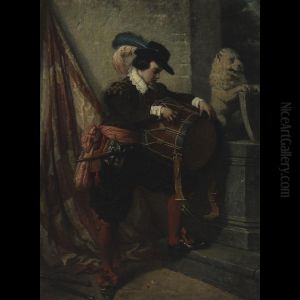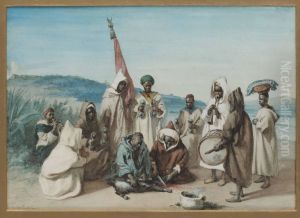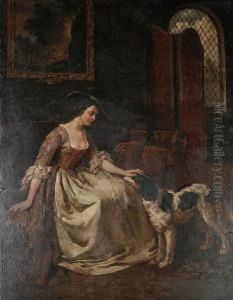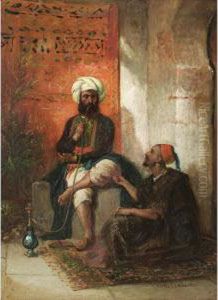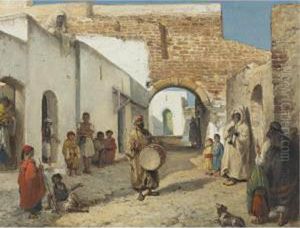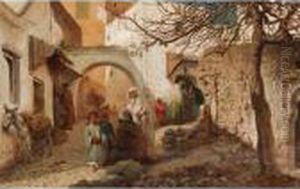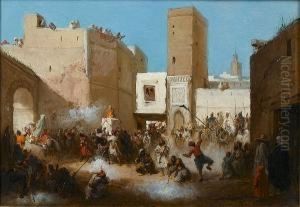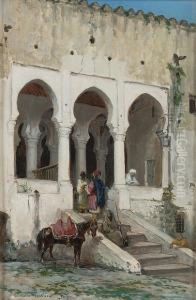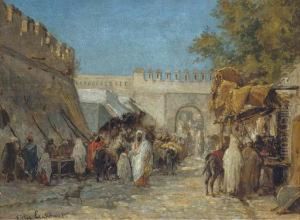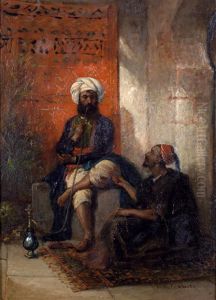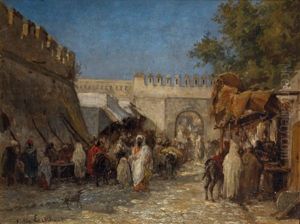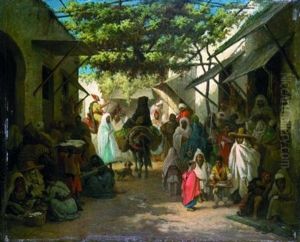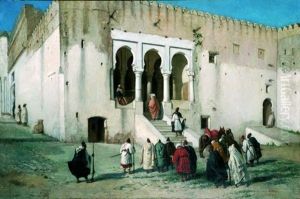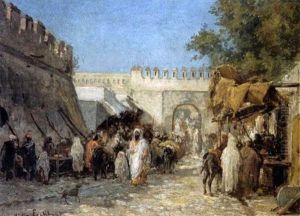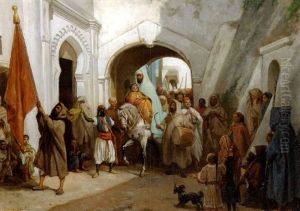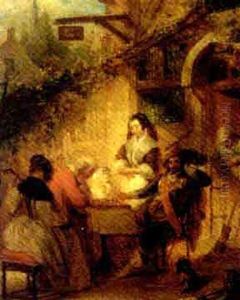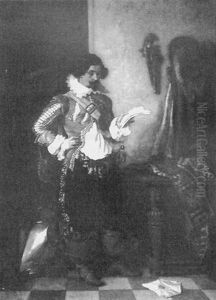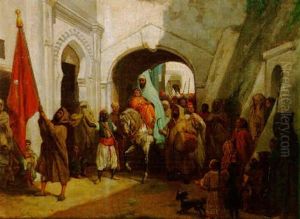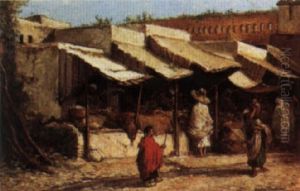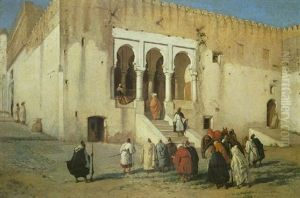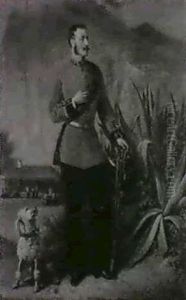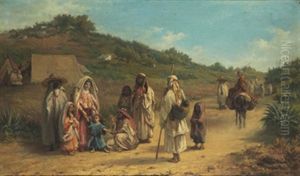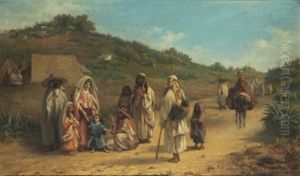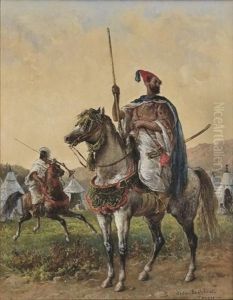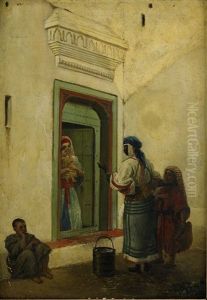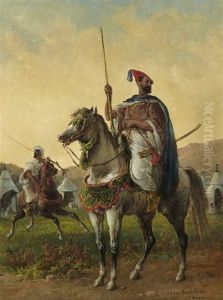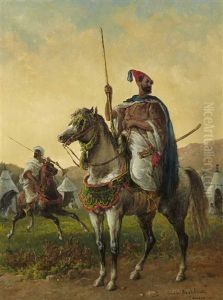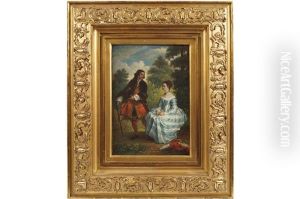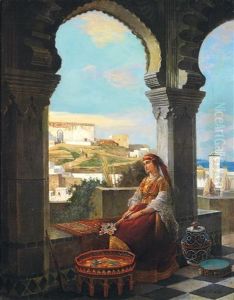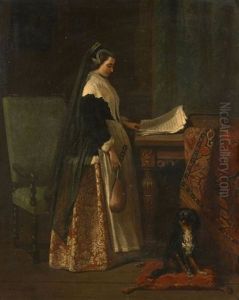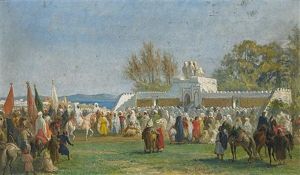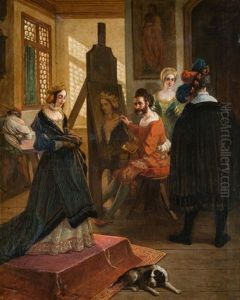Victor Eeckhout Paintings
Victor Eeckhout was a Belgian painter born in the city of Antwerp on October 19, 1821. He was known for his genre scenes and historical paintings. Eeckhout studied at the Royal Academy of Fine Arts in Antwerp, where he was a pupil of Gustaf Wappers, an influential Romantic painter. Eeckhout's work was influenced by the Romantic movement, and he often depicted scenes from everyday life as well as historical events with a dramatic and emotional style.
During his career, Eeckhout traveled extensively, which influenced his subject matter. He visited countries such as Italy and Egypt, drawing inspiration from the local customs, people, and landscapes he encountered. His travels were reflected in his works, which often portrayed exotic and oriental scenes. These works resonated with the fascination for Orientalism that was prevalent in European art during the 19th century.
Victor Eeckhout exhibited his paintings in various salons and exhibitions, gaining recognition for his artistic talent. His work was appreciated for its vivid storytelling and attention to detail. In addition to his paintings, Eeckhout created a number of lithographs, which also received acclaim.
Despite his success, Eeckhout's life was marked by tragedy and hardship. He faced financial difficulties throughout his career, which impacted his emotional well-being. Nevertheless, he continued to produce art that was both personally meaningful and well-regarded by his contemporaries.
Eeckhout's work is part of the collections of several museums, and his legacy continues to be studied by art historians interested in the Romantic period and Orientalist art. Victor Eeckhout passed away on September 16, 1879, in Antwerp. His contributions to Belgian art remain significant, and his paintings are appreciated for their emotional depth and historical value.
